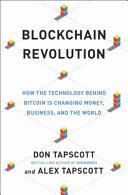

Decentralization is one of the core principles of blockchain technology. Traditional systems, such as banks and governmental institutions, operate on a centralized model where a single entity retains control over information and transactions. In contrast, blockchain enables a decentralized network where multiple participants maintain a distributed ledger. This shift reduces the risk of fraud, enhances transparency, and increases trust among users. For example, in a centralized banking system, a single point of failure can lead to systemic risks, whereas in a decentralized system, the failure of one node does not compromise the entire network. This decentralization has profound implications for various sectors, including finance, supply chain, and governance, as it empowers individuals and organizations to interact directly without intermediaries.
Continue readingBlockchain technology fosters a new paradigm of trust and transparency. Unlike traditional systems where trust is established through intermediaries, blockchain allows for trust to be built into the technology itself. Each transaction on the blockchain is recorded in a public ledger that is immutable and tamper-proof. This means that once a transaction is confirmed, it cannot be altered or deleted, providing a transparent audit trail. This transparency is crucial in industries such as finance, where stakeholders require assurance that transactions are legitimate. By providing a verifiable history of transactions, blockchain mitigates the need for trust in third parties and encourages direct relationships between users. This shift can lead to more ethical business practices and reduce corruption.
Continue readingSmart contracts are self-executing contracts with the terms of the agreement directly written into code. They automatically enforce and execute the terms when predetermined conditions are met. This innovation streamlines processes that traditionally require intermediaries, such as legal advisors or notaries, reducing costs and increasing efficiency. For instance, in real estate transactions, a smart contract can automatically transfer ownership of a property once payment is received, eliminating the need for extensive paperwork and delays. Smart contracts also enhance security, as they operate on the blockchain, making them resistant to tampering. This technology has the potential to revolutionize various industries by enabling more efficient and trustworthy interactions.
Continue readingTokenization refers to the process of converting physical or digital assets into digital tokens on a blockchain. This allows for fractional ownership, increased liquidity, and easier transfer of assets. For example, real estate properties can be tokenized, enabling multiple investors to own a fraction of a property, thus lowering the barrier to entry for investment. This democratization of asset ownership can lead to more inclusive financial systems. Furthermore, tokenization can enhance the efficiency of transactions, as digital tokens can be transferred instantly across borders without the need for traditional banking systems. As more assets become tokenized, we may see significant changes in how value is exchanged and stored in the economy.
Continue readingBlockchain technology has the potential to disrupt traditional industries by offering innovative solutions that challenge existing business models. Industries such as finance, healthcare, supply chain, and entertainment are already experiencing the impact of blockchain. For example, in finance, blockchain can facilitate peer-to-peer lending, reducing reliance on banks. In healthcare, it can enable secure sharing of patient data while maintaining privacy. The supply chain can benefit from enhanced traceability, allowing consumers to verify the origin of products. This disruption prompts established companies to adapt or risk obsolescence. As blockchain continues to evolve, its capacity to transform industries will only expand, creating new opportunities for entrepreneurs and innovators.
Continue readingBlockchain technology promotes global collaboration and inclusion by providing a platform for individuals and organizations to interact without geographical barriers. This is particularly significant in developing countries where access to traditional financial services is limited. Blockchain enables people to participate in the global economy through decentralized finance (DeFi) platforms, which offer services like lending and trading without the need for banks. Furthermore, blockchain can empower individuals by giving them control over their data and identities, fostering a more inclusive digital landscape. This democratization of access can lead to greater economic participation and innovation, bridging gaps between developed and developing regions.
Continue readingWhile blockchain technology holds tremendous promise, it also faces challenges that must be addressed for its widespread adoption. Issues such as scalability, energy consumption, regulatory uncertainty, and interoperability between different blockchain networks are significant hurdles. For instance, many blockchain networks struggle to process transactions at the speed required for mass adoption, leading to congestion and high fees. Additionally, the environmental impact of blockchain mining has raised concerns, prompting discussions about more sustainable alternatives. Regulatory bodies are also grappling with how to govern this emerging technology without stifling innovation. Addressing these challenges will be crucial for realizing the full potential of blockchain and ensuring its integration into mainstream applications.
Continue readingThe reading time for Blockchain Revolution depends on the reader's pace. However, this concise book summary covers the 7 key ideas from Blockchain Revolution, allowing you to quickly understand the main concepts, insights, and practical applications in around 24 min.
Blockchain Revolution is definitely worth reading. The book covers essential topics including Decentralization, Trust and Transparency, Smart Contracts, providing practical insights and actionable advice. Whether you read the full book or our concise summary, Blockchain Revolution delivers valuable knowledge that can help you improve your understanding and apply these concepts in your personal or professional life.
Blockchain Revolution was written by Alex Tapscott, Don Tapscott.
If you enjoyed Blockchain Revolution by Alex Tapscott, Don Tapscott and want to explore similar topics or deepen your understanding, we highly recommend these related book summaries:
These books cover related themes, complementary concepts, and will help you build upon the knowledge gained from Blockchain Revolution. Each of these summaries provides concise insights that can further enhance your understanding and practical application of the ideas presented in Blockchain Revolution.